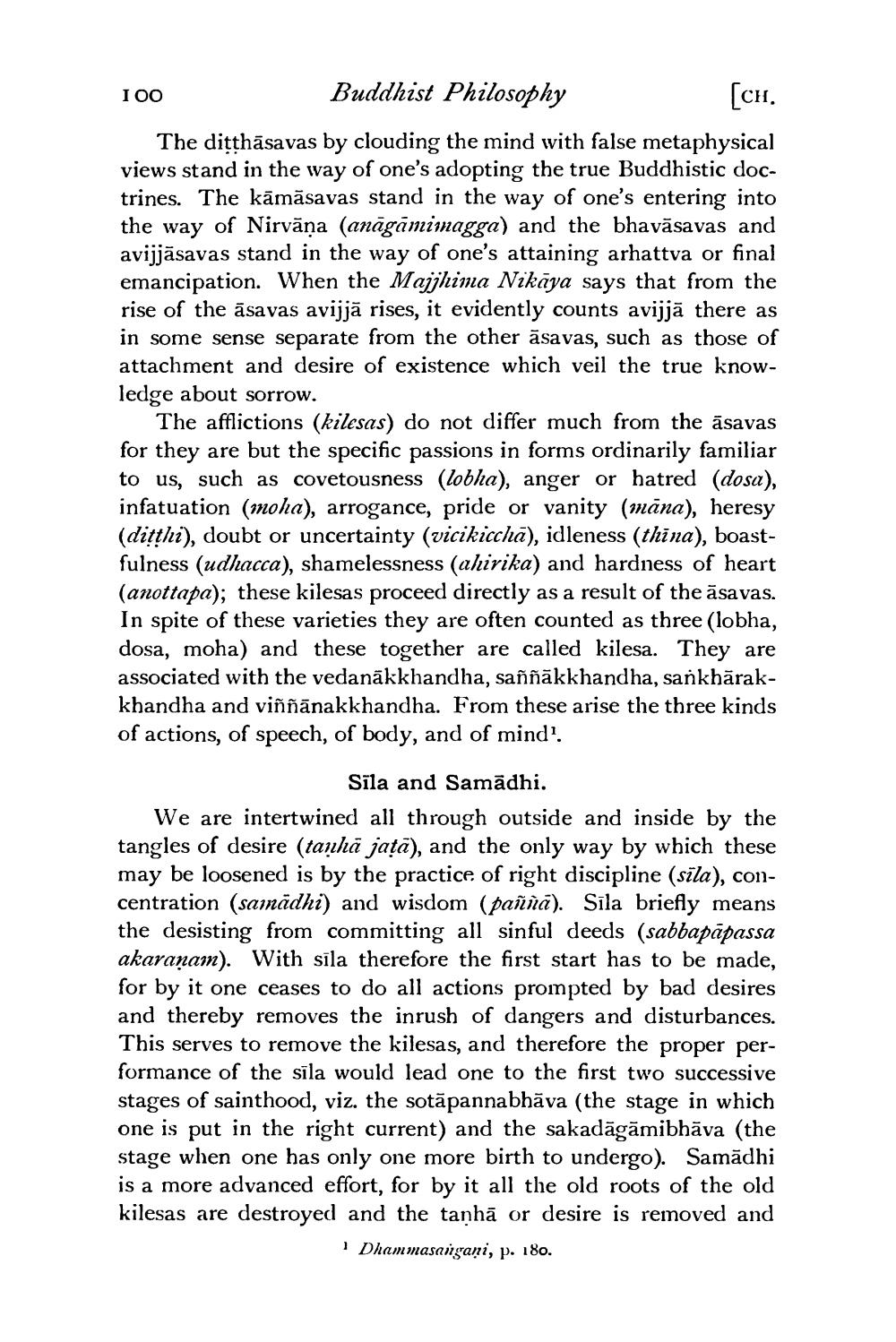________________
I OO
Buddhist Philosophy
[CH
The ditthāsavas by clouding the mind with false metaphysical views stand in the way of one's adopting the true Buddhistic doctrines. The kāmāsavas stand in the way of one's entering into the way of Nirvāṇa (anāgāmimagga) and the bhavāsavas and avijjāsavas stand in the way of one's attaining arhattva or final emancipation. When the Majjhima Nikāya says that from the rise of the āsavas avijjā rises, it evidently counts avijjā there as in some sense separate from the other āsavas, such as those of attachment and desire of existence which veil the true knowledge about sorrow.
The afflictions (kilesas) do not differ much from the āsavas for they are but the specific passions in forms ordinarily familiar to us, such as covetousness (lobha), anger or hatred (dosa), infatuation (moha), arrogance, pride or vanity (māna), heresy (ditthi), doubt or uncertainty (vicikiccha), idleness (thina), boastfulness (udhacca), shamelessness (ahirika) and hardness of heart (anottapa); these kilesas proceed directly as a result of the āsavas. In spite of these varieties they are often counted as three (lobha, dosa, moha) and these together are called kilesa. They are associated with the vedanākkhandha, saññākkhandha, sankhārakkhandha and viññānakkhandha. From these arise the three kinds of actions, of speech, of body, and of mind?
Sila and Samādhi. We are intertwined all through outside and inside by the tangles of desire (taṇhā jață), and the only way by which these may be loosened is by the practice of right discipline (sila), concentration (samnādhi) and wisdom (paññā). Sila briefly means the desisting from committing all sinful deeds (sabbapāpassa akaraṇam). With sīla therefore the first start has to be made, for by it one ceases to do all actions prompted by bad desires and thereby removes the inrush of dangers and disturbances. This serves to remove the kilesas, and therefore the proper performance of the sīla would lead one to the first two successive stages of sainthood, viz. the sotāpannabhāva (the stage in which one is put in the right current) and the sakadāgāmibhāva (the stage when one has only one more birth to undergo). Samādhi is a more advanced effort, for by it all the old roots of the old kilesas are destroyed and the tanhā or desire is removed and
1 Dhammasangani, p. 180.




